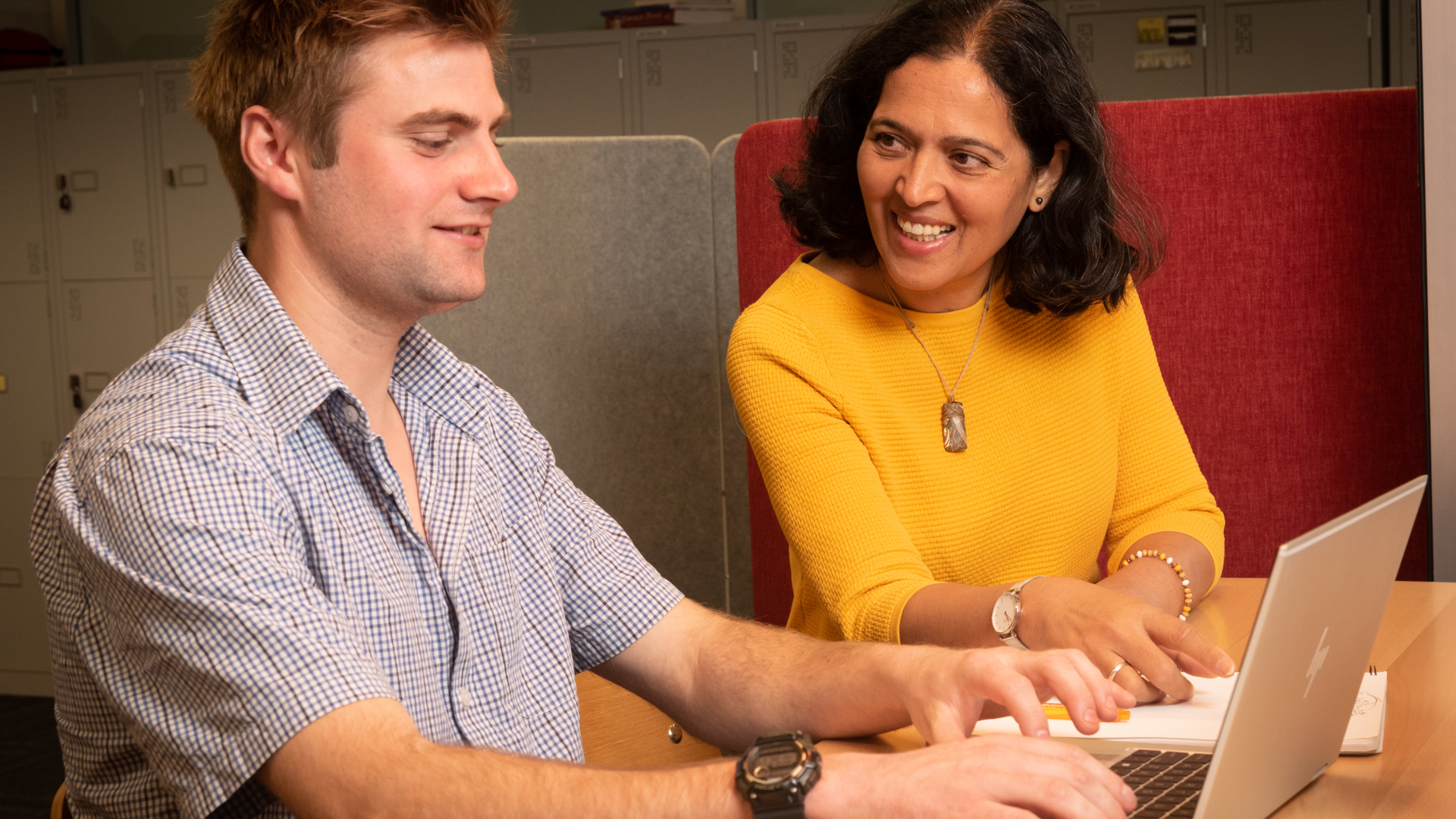Managing your thesis/dissertation journey
Strategies for managing the research and writing process.

Completing a research degree is not easy, but there are ways to make the process more manageable and more enjoyable. It is vital that you choose a topic you are interested in and committed to. This is a long process and that commitment will help you through the inevitable low points. It's important to set specific, challenging (but realistic) goals and keep on track by monitoring your progress and meeting milestones. It's also a good idea to develop and maintain connections with other research students and gather a support crew. This can help contribute to your career and your wellbeing. The relationship with your supervisor is crucial and ground rules need to be set and understood by all from the beginning. Find out what information, resources and support is available - and use it.
Planning and persevering
There are many advice books on project management, but it’s important to remember that managing a research project starts with managing yourself. So, you will need to develop individual solutions and strategies rather than adopting fixed rules.
Start by analysing your technical skills, goals and priorities, and preferred ways of working. Then identify the research and writing tasks for the project, and their timing. Finally, develop medium term and short term plans that allow you to meet the project goals while working to your strengths and limitations.
To get started, check out:
Connecting with others and maintaining wellbeing
Completing a research degree can be quite a solitary activity. Try to build in more research-focused activity with other students, as well as times to relax and socialise.
Research writing groups
Writing groups are small groups of writers who meet regularly to discuss their work and provide feedback on each other’s writing. Being part of a writing group can help you develop confidence and skills in writing, and keep on track so that you complete on time. Working in groups also makes writing more sociable and enjoyable. If you would like to find out more about how to set up a research writing group, contact a Learning Advisor.
Writing retreats
For an intensive writing boost, join your peers for a writing retreat. This is a time to focus on a specific writing project without distractions. It is also an opportunity to take time out during the day to talk to others about your project, seek feedback on your writing and enjoy socialising with colleagues. Most retreats are one or two days, on campus, but half-day and online retreats are also offered.
Check our events page to find out when the next retreat is to be held.
LUSA Postgrad Society
The Post Grad Society encourages postgrad students to take some well-deserved time out from study. Throughout the year, the Post Grad Society hosts events for students. If you have any questions or suggestions, get in touch: clubs@lusa.org.nz
ASAP – Lincoln’s All Staff and Postgrads Club
- Meets every Friday from 4-6pm in Mrs O’s.
- Free finger food plus a range of drinks purchased from the bar.
- Make new friends, destress and have fun after a busy week.
Wellbeing
- Caring for your wellbeing and staying healthy will make you more productive, so develop a good research/life balance and gather a support crew to help you.
- Student Health are on hand to support your general health needs throughout your time on campus.
- The Wellbeing team offers workshops, such as sleep management, relaxation sessions and self-regulation. They can also work with you individually.
- Come to some of the Wellbeing workshops or check out the wellbeing site
LU Gym
Evidence shows the benefits of regular exercise and mindfulness for physical and mental fitness. Make sure you check out all the Lincoln University Gym offers in facilities, equipment, fitness and wellbeing classes, sports clubs and social sports.
The LU Gym is on the corner of Calder Drive and Farm Road. Drop in to have a look around or to register.
Valuing your supervisor
Establishing an effective working relationship with your supervisor is crucial. Early on, it’s a good idea to:
- Find out about the supervision systems at Lincoln University
- Read the relevant sections of the House Rules that explain the supervision process
- Establish expectations with your supervisor after carefully reading the Mutual Expectations Agreement and discussing it fully with your supervisor
- You could also use one of the many checklists that help students and supervisors identify any areas where their expectations differ; for example Kearns and Finn (2017) Expectations of research supervision.
- Read some of the advice resources in the LU collection including Resources for thesis/dissertation writers.
Workshops
The Postgraduate Toolbox is a series of workshops and events that focus on professional development in academic, research, communication, employability and personal skills. You will gain valuable knowledge, useful both for completing your degree and in future employment. Sessions are offered by a range of campus services. Current dates and times are available here.
LU collection thesis resources
There is no single publication that provides a comprehensive guide for thesis and dissertation writers, but there are many resources that provide excellent advice on at least one aspect of the research and writing process. This list includes a selection of useful print and online self help resources in the Lincoln University collection.
Resources for thesis/dissertation writers
Blogs
Blogs provide valuable support and practical resources for research students. Some are hosted by current, or recently graduated, postgraduate students; others by research advisors. Look around to find one that suits your approach. You could start with:
Get Individual Advice
Talk to Academic Success or attend one of our workshops for help with your study.


